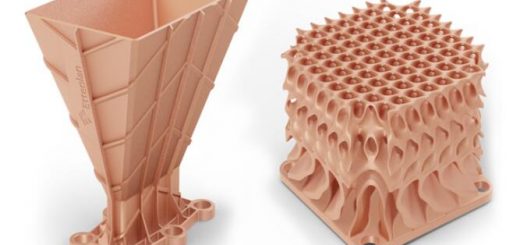Chemical Giant BASF Invests US$25 million in Materialise to Optimize Materials and Software for 3D Printing
BASF is expanding its cooperation with Materialise, a leading supplier of 3D printing technologies. At the same time, BASF has agreed to invest US$25 million in the Belgian company, which is headquartered in Leuven. The two partners are working together within the framework of an open business model to continuously improve materials and software for various 3D printing technologies and bring them more rapidly to the market. The companies are focusing on applications in the consumer goods sector and in the automotive and aviation industries. The agreement allows for systematic, wider scale testing and further optimization by BASF of its materials on the machines and within the infrastructure of Materialise.

“Our two companies’ business areas complement each other very well and our cooperation will put us in an even better position to find and develop new business opportunities,” says Volker Hammes, Managing Director of BASF 3D Printing Solutions GmbH. The partners intend to accelerate the development of innovative applications and new materials. “With its 3D printer facilities in Leuven and innovative software solutions, Materialise has an outstanding infrastructure. Together, we can exploit our strengths even better to advance the 3D printing sector through the development of new products and technologies together with our partners and our customers,” adds Hammes.
“To increase the adoption of 3D printing as a complementary manufacturing technology for final products, our industrial customers increasingly demand more control, more choice and ultimately lower cost”, says Fried Vancraen, Materialise CEO. “We are confident that this collaboration with a leading manufacturer of materials will help to accelerate the adoption of 3D-printing in existing vertical markets and create significant business opportunities in new markets.“
3D printing is a transformational technology that holds the potential to revolutionize entire industries by making it possible and cost-effective to mass manufacture entirely individualized products. It also allows for design optimizations and functional improvements, such as lighter designs, that are impossible to create with standard manufacturing technologies. As a result, more and more industries, including the aerospace, automotive, footwear and the eyewear industry, are adopting 3D printing to solve specific manufacturing challenges.
Source: BASF




Recent Comments